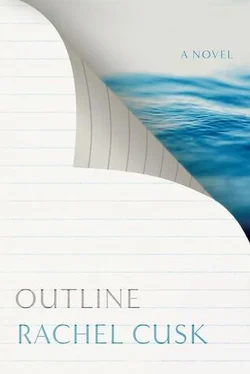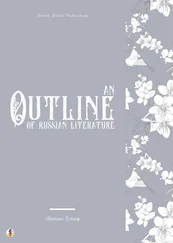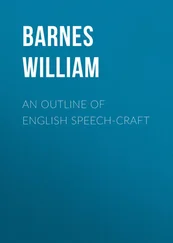His narrow blue eyes fixed themselves on the young waitress, who was approaching through the shade with our drinks.
‘Oh, run away with me,’ he said, as she leaned over him to place his glass on the table. I thought she must have heard him, but he had judged it precisely: her superb, statue-like countenance didn’t flicker. ‘What people,’ he said, still watching her while she walked away. He asked whether I was at all familiar with the country and I said that I had come here, to Athens, on a somewhat fateful holiday with my children three years earlier.
‘They’re beautiful people,’ he replied. After a while he said that he supposed it wasn’t all that hard to explain, when you considered the climate and the way of life, and of course the diet here. When you looked at the Irish you saw centuries of rain and rotten potatoes. He still had to fight it in himself, that feeling of contaminated flesh; it was so hard to feel clean in Ireland, the way he’d felt in America, or the way you felt here. I asked him why he had come back, after he finished his Masters, and he said there were a lot of reasons, though no one of them was particularly powerful. It was just that all together they amounted to enough to nudge him back. One of them, in fact, was the very thing he had liked most about America at first, which was the feeling that no one really came from anywhere. I mean obviously, he said, they had to have come from somewhere, but there wasn’t the same feeling of your home town waiting to claim you, that sense of pre-ordination that he had miraculously felt himself climbing clear of as he first rose above the clouds. His fellow students made much of his Irishness, he said: he found himself playing up to it, putting on the accent and all that, until he’d almost convinced himself that being Irish was an identity in itself. And after all, what other identity did he have? It frightened him a little, the idea of not coming from somewhere; he began to see himself as not cursed but blessed, began almost to rekindle that sense of pre-ordination, or at least to see it in a different light. And writing, the whole concept of transmuted pain — Ireland was the structure for that, his own past in Tralee was the structure for that. He suddenly felt he might not cope with the fundamental anonymity of America. To be perfectly honest, he wasn’t the most talented student on that programme — he had no problem admitting that — and one reason, he’d decided, was this same anonymity his peers had to grapple with and he didn’t. It made you a better writer, did it not, not having an identity to fall back on: you saw the world with less troubled eyes. And he was more Irish in America than he’d ever been at home.
He began to see Dublin as he used to see it in his mind’s eye as a schoolboy, with scholars on bicycles sailing like dark swans through the streets in their black robes. Might what he had seen all those years before be himself? A dark swan, gliding through the protected city, free within its walls; not the American version of freedom, big and flat and borderless as a prairie. He came back in a moderate blaze of glory, with his teaching job and his ballet dancer and his book contract. The ballet dancer went home six months later, and the book — a book of short stories, well received — remains his only published work. He and Nancy are still in touch: in fact, they talked on Facebook only the other day. She doesn’t dance any more — she’s become a psychotherapist, though to be honest she’s a little bit crazy herself. She lives with her mother in an apartment in New York City, and even though she’s forty years old it strikes Ryan that she is unchanged, that she is more or less exactly the same as she was at twenty-three. And there’s him with his wife and his kids and his house in Dublin, a different man in every way. Stunted, is what he sometimes thinks about her, though he knows it’s unkind. She’s always asking him if he’s written another book yet, and in a way he’d like to ask her in return — though of course he never would — whether she’s had a life yet.
As for the stories, he still likes them, still picks them up and reads them now and then. They get reproduced every so often in anthologies; a little while ago his agent sold the rights to a publishing house in Albania. But in a way it’s like looking at old photographs of yourself. There comes a point at which the record needs to be updated, because you’ve shed too many links with what you were. He doesn’t quite know how it happened; all he knows is that he doesn’t recognise himself in those stories any more, though he remembers the bursting feeling of writing them, something in himself massing and pushing irresistibly to be born. He hasn’t had that feeling since; he almost thinks that to remain a writer he’d have to become one all over again, when he might just as easily become an astronaut, or a farmer. It’s as if he can’t quite remember what drove him into words in the first place, all those years before, yet words are what he still deals in. I suppose it’s a bit like marriage, he said. You build a whole structure on a period of intensity that’s never repeated. It’s the basis of your faith and sometimes you doubt it, but you never renounce it because too much of your life stands on that ground. Though the temptation can be extreme, he added, as the young waitress glided past our table. I must have looked disapproving, because he said:
‘My wife eyeballs the fellas, when she’s out for the night with her friends. I’d be disappointed if she didn’t. Take a good look, is what I say. See what’s out there. And she’s just the same — go on, feel free to look.’
I remembered then an evening I’d spent in a bar a few years ago, with a group of people that included a married couple I didn’t know. The woman kept identifying attractive girls and drawing her husband’s attention to them; they sat there and discussed the attributes of the various girls, and were it not for the grimace of utter desperation I glimpsed on the woman’s face when she thought no one was looking, I would have believed this was an activity both of them enjoyed.
He and his wife had a good partnership, Ryan said. They shared the work of the kids and the house — his wife was no martyr, as his mother had been. She went off on her own holidays with her girlfriends and expected him to take care of everything in her absence: when they gave one another freedoms, it was on the understanding that they would claim those same freedoms themselves. If it sounds a little bit calculated, Ryan said, that doesn’t worry me at all. There’s a business aspect to running a household. It’s best if everyone’s honest right at the start about what they’re going to need, to be able to stay in it.
My phone sounded on the table in front of me. It was a text from my son: Where’s my tennis racket? I don’t know about you, Ryan said, but I actually don’t have the time to write, what with the family and the teaching job. Especially the teaching — it’s the teaching that sucks the life out of you. And when I do have a week to myself, I spend it teaching extra courses like this one, for the money. If it’s a choice between paying the mortgage and writing a story that’ll only see the light of day in some tiny literary magazine — I know that for some people there’s a need, or so they say, but for a lot of them I think it’s more that they like the life, they like saying that’s what they are, a writer. I’m not saying I don’t like it myself, but it isn’t the be-all and end-all. I’d just as soon write a thriller, to be perfectly honest. Go where the real money is — one or two of my own students, he said, have taken that road, you know, written things that have gone global in some cases. Actually it was the wife who said it — wasn’t it you taught them how to do that? Obviously she doesn’t entirely understand the process, but in a way she’s got a point. And if there’s one thing I know it’s that writing comes out of tension, tension between what’s inside and what’s outside. Surface tension, isn’t that the phrase — actually that’s not a bad title, is it? He sat back in his chair and stared meditatively out towards the street. I wondered whether he had already decided on Surface Tension as the title for his thriller. In any case, he continued, when I think back to the conditions that made me write The Homecoming, I realise there’s no point me trying to get back to that place because I never could. I could never reproduce that particular tension in myself: life is sending you in one direction and you’re pulling away in another, like you’re disagreeing with your own destiny, like who you are is in disagreement with who they say you are. Your whole soul is in revolt, he said. He drained his glass of beer in one swallow. What am I in revolt against now? Three kids and a mortgage and a job I’d like to see a bit less of, that’s what.
Читать дальше












